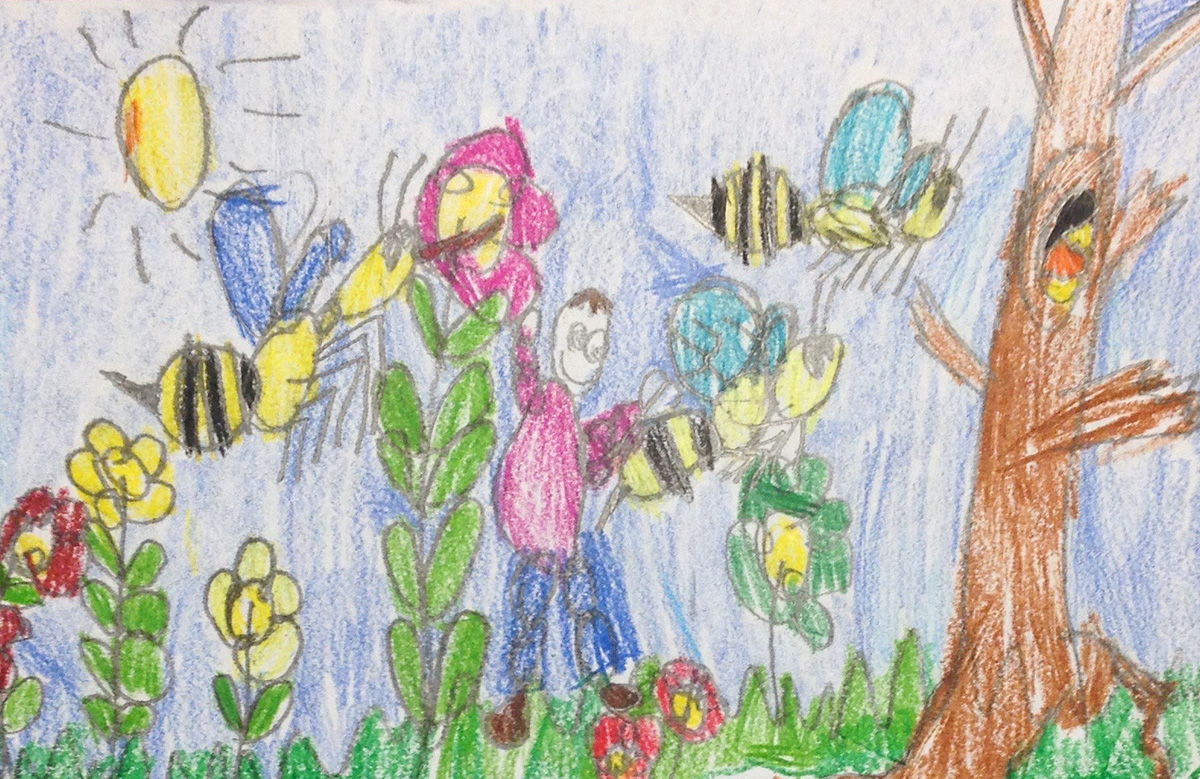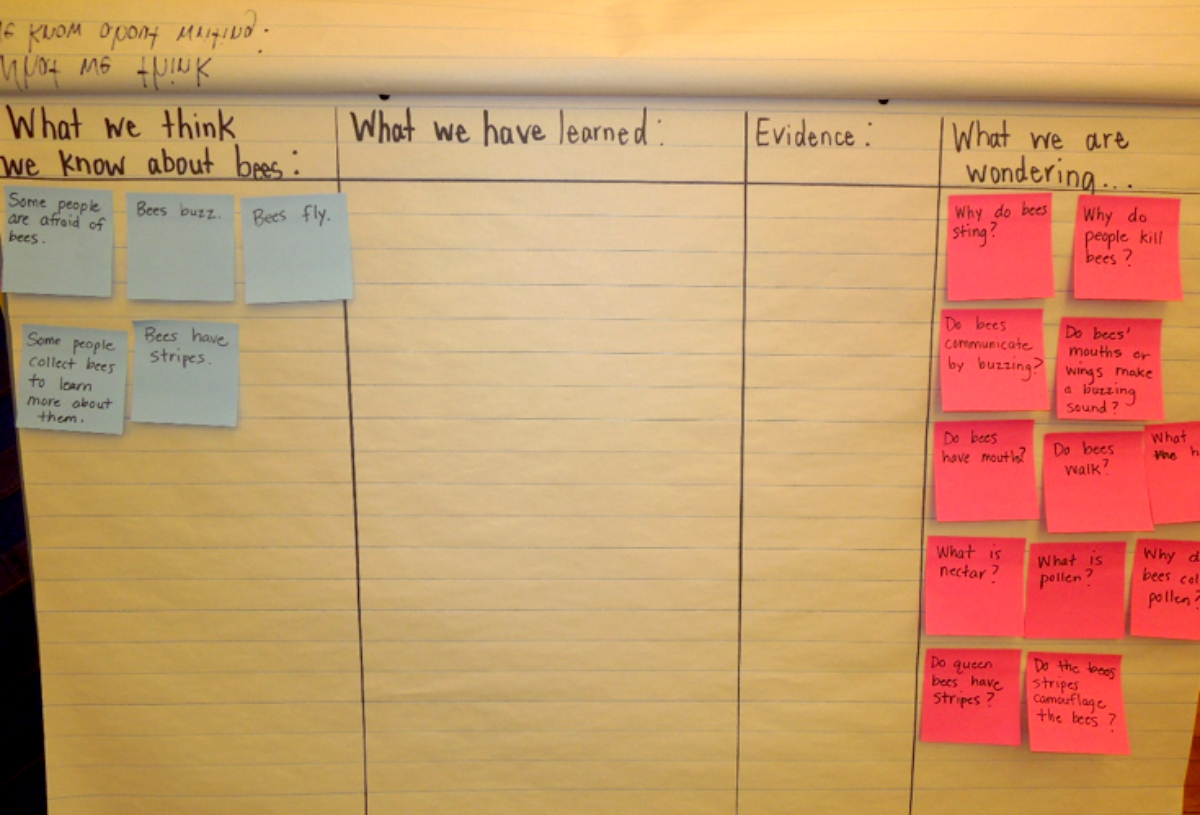Chapter 4: Why Bees? Writing Nonfiction Together In Kindergarten
4.2 Asking Questions: Getting Started With Research

It’s 8:50am and the bell has rung to signify that students can begin to enter the classroom. I’m furiously typing to finish an email response to a parent when my first student, William, enters the classroom. As he walks in, I glance over and say, “Good morning, William!” And he says, “How hot is lava?” Not “Good Morning” or “Hello”. He enters the room asking a question he is curious about. Is he thinking, “This is that place where we ask questions and try to find the answers”? If he is, I have done my job! (Event recorded in my classroom, April 2015)
It is the middle of April and time to begin our bee unit. As I reflect upon ways that I have started this unit in previous years with the use of a KWL chart (where we ask students to tell us or show us in their drawings and writing what they (K)now, what they (W)ant to know and then what they have (L)earned), I remember my past experiences. First of all, whenever we ask kindergarten students what they want to know about a topic or if they have any questions, inevitably they will tell story after story. Their egocentric psyches want to show us what they know! And when we ask how they know that, it’s usually because “My dad told me!” The other problem I have encountered with the traditional KWL chart is that much of what kindergarteners think they know about a topic usually includes some misconceptions or misinformation. Thus, we need to research to confirm if what we think we know is indeed true or not.
As I reflected about how to begin this year, I decided that I wanted the emphasis to be more on the inquiry from the beginning. It occurred to me that developmentally, Kindergarteners really do think that what they KNOW has to be true; so, maybe starting by asking them what they know about a topic was not the best for creating an atmosphere in which as learners and researchers we would be engaged in finding out more about a topic. I wanted to think of a way to generate questions from the start to help fuel interest in the topic and lead us to our research.
To that end, on the first day, as we were gathered on the rug, I asked students to think about what comes to their minds first when they hear the word “bee”. As they shared, I scribed their ideas on a piece of chart paper. One child shared a story about her friend who was running through the grass and got stung by a bee. Right away, I wondered out loud about why that bee stung the child? The students, of course, had all kinds of answers. As they were speaking, I wrote “Why do bees sting?” on a post-it and placed it under the “wondering” subheading.
The next day, we revisited that list and decided what we thought we knew including why we were sure (our evidence) and generated questions at the same time. By the end, our chart was loaded with more questions than statements, giving us a purpose for our research stemming from student inquiry.
As a science inquirer, I knew that what I probably should do was to take my 27 Kindergarten students outside and let them observe bees naturally. That approach had certainly worked for me. However, the reality is that I hesitate to allow five year old children to become bitten (or stung in this case) by the inquiry bug. Over time, I have discovered that it usually takes immersing ourselves in our research to overcome fears that may lead to swatting and consequently being stung by the very bees we are researching. For me, it took a trip to an apiary where the beekeeper allowed a couple of male drones who don’t have stingers to crawl all over my hands and arms to get me comfortable! So, maybe Kindergarteners shouldn’t be researching bees! Perhaps you’re right. However, bees are fascinating and complex creatures that arouse curiosity in young children while, at the same time, they can be frightening to them. And there is yet another reason to study bees! There is an important life lesson to be learned about fearing something just because we are uneducated about that something…or someone.
